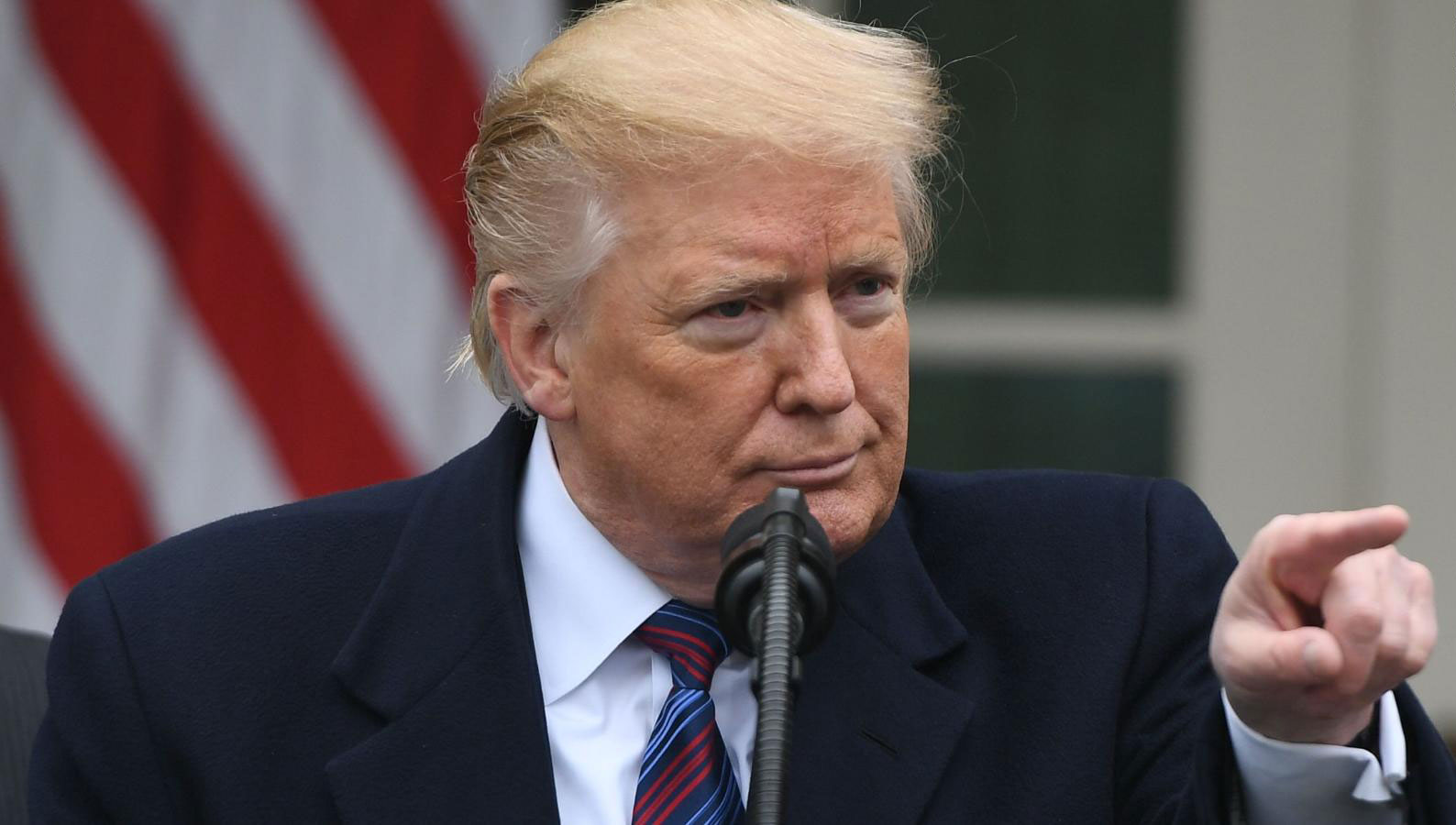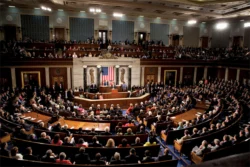The question of whether the United States has an interest in bombing Iran has been a recurring topic in global discourse, particularly in light of escalating tensions in the Middle East as of June 2025. With Israel’s recent strikes on Iranian nuclear facilities and retaliatory Iranian missile attacks, speculation about U.S. military involvement has intensified. This blog explores the potential interests, motivations, and risks for the U.S. in considering military action against Iran, drawing on geopolitical, security, economic, and domestic political factors, while critically examining the implications.
Background: U.S.-Iran Relations and Current Context
U.S.-Iran relations have been fraught since the 1979 Iranian Revolution, which ended a close alliance under Shah Mohammad Reza Pahlavi and led to the establishment of an anti-American Islamic Republic. Key events, such as the U.S. embassy hostage crisis (1979–1981), the U.S. withdrawal from the Joint Comprehensive Plan of Action (JCPOA) in 2018, and the assassination of IRGC General Qasem Soleimani in 2020, have deepened mutual distrust. As of June 2025, Israel’s unilateral strikes on Iran’s nuclear sites, including Natanz, and Iran’s retaliatory missile barrages have raised fears of a broader regional conflict, with the U.S. under pressure to decide its role.
The U.S. has not yet joined Israel’s campaign, with President Donald Trump emphasizing diplomacy while issuing ultimatums for Iran to dismantle its nuclear program. However, the deployment of B-2 bombers and refueling tankers to the Middle East suggests contingency planning for potential strikes, particularly on Iran’s fortified Fordo nuclear facility, which only U.S. bunker-buster bombs can effectively target. This article analyzes why the U.S. might consider bombing Iran, what interests are at stake, and the potential consequences.
Potential U.S. Interests in Bombing Iran
1. Preventing a Nuclear-Armed Iran
-
Strategic Concern: A primary U.S. interest is preventing Iran from acquiring nuclear weapons, which could destabilize the Middle East and threaten U.S. allies, particularly Israel and Saudi Arabia. U.S. intelligence estimates that Iran could produce enough highly enriched uranium for a bomb in a week but would need months to a year to weaponize it. Israel’s claims of a “secret” Iranian weaponization program have heightened urgency, though U.S. assessments suggest Iran is not actively pursuing a bomb.
-
Why Bombing?: The Fordo facility, buried deep under a mountain, is seen as a critical node in Iran’s nuclear program. Only U.S. B-2 bombers carrying 30,000-pound Massive Ordnance Penetrators (MOPs) can destroy it. If diplomacy fails, bombing Fordo could delay Iran’s nuclear ambitions by years, preserving U.S. strategic dominance in the region.
-
Counterpoint: Critics argue that strikes could push Iran to accelerate its nuclear program, potentially exiting the Non-Proliferation Treaty (NPT) and pursuing a bomb as a deterrent. Historical data shows Iran’s nuclear advancements often follow aggressive Western actions, suggesting bombing could backfire.
2. Supporting Israel’s Security
-
Alliance Dynamics: The U.S. has a long-standing commitment to Israel’s security, reinforced by military aid and defense cooperation. Israel views Iran’s nuclear program and its support for proxies like Hezbollah and Hamas as existential threats. Israeli leaders, including Prime Minister Benjamin Netanyahu, have pressed the U.S. to join strikes to “finish the job” at Fordo, arguing that Israel lacks the capability to destroy it alone.
-
Political Pressure: Pro-Israel lobbying groups and hawkish U.S. lawmakers, such as Senator Lindsey Graham, advocate for U.S. involvement, framing it as a shared interest in neutralizing Iran’s nuclear threat. Former Vice President Mike Pence has called for providing bombs or even “flying with Israel” to ensure Iran’s nuclear program is eradicated.
-
Risks: Aligning too closely with Israel could alienate other Middle Eastern partners and draw the U.S. into a broader conflict, especially if Iran retaliates against U.S. bases or allies. Public opinion in the U.S. is divided, with some Republicans, like Senator Rand Paul, opposing involvement as contrary to “America First” principles.
3. Countering Iran’s Regional Influence
-
Proxy Networks: Iran’s support for the “Axis of Resistance”—including Hezbollah, the Houthis, and Iraqi militias—challenges U.S. interests in the Middle East. Since October 2023, Iran-backed groups have conducted over 180 attacks on U.S. bases in Iraq, Syria, and Jordan, killing three U.S. soldiers in January 2024. Bombing Iran could weaken its ability to fund and arm these proxies, reducing threats to U.S. forces and allies.
-
Strategic Messaging: A military strike could signal U.S. resolve to deter Iran’s regional ambitions, reinforcing alliances with Gulf states like Saudi Arabia and the UAE, which fear Iran’s influence. The U.S. has historically used military action to assert dominance, as seen in strikes on Iran-backed militias in 2023–2024.
-
Downside: Strikes could galvanize Iran’s proxies, leading to intensified attacks on U.S. assets. Iran has warned of targeting U.S. bases in Iraq and Arab allies if the U.S. joins Israel’s campaign, risking a wider war.
4. Domestic Political Considerations
-
Hawkish Support: Bombing Iran could appeal to hawkish Republicans and pro-Israel voters, bolstering Trump’s domestic support. His “maximum pressure” campaign, including sanctions and threats, resonates with supporters who view Iran as a primary adversary.
-
Isolationist Pushback: Conversely, Trump’s “America First” base, including voices like Tucker Carlson, opposes Middle East wars, arguing they drain U.S. resources without clear benefits. A 2025 Mises Institute article warns that war with Iran would be “costlier” than past conflicts, reflecting growing anti-interventionist sentiment.
-
Electoral Calculus: With Trump’s presidency focused on economic promises, a costly war could alienate voters. Polls show 57% of Americans consider themselves “mobile phone addicts” but are less engaged with foreign policy unless it directly impacts costs like oil prices, which could spike post-strikes.
5. Economic and Energy Interests
-
Oil Market Stability: Iran’s potential to disrupt the Strait of Hormuz, through which 20% of global oil flows, is a concern. Strikes could preempt such actions but risk Iranian retaliation against Gulf oil facilities, driving up prices. A 2025 Politico analysis predicts oil price surges if Iran blockades the Strait, impacting U.S. consumers.
-
Sanctions Leverage: Bombing could complement Trump’s sanctions strategy, forcing Iran to negotiate from a weaker position. However, Iran’s “resistance economy” and trade with China and Russia have reduced sanctions’ effectiveness, limiting U.S. leverage.
-
Trade Risks: A war could disrupt U.S. trade with Gulf allies and increase costs for American businesses, especially if tariffs on Chinese goods, which Trump supports, coincide with rising oil prices.
Risks and Consequences of Bombing Iran
1. Regional Escalation
-
A U.S. strike could ignite a broader conflict, drawing in Iran’s allies like Hezbollah, the Houthis, and Iraqi militias. Hezbollah could launch thousands of rockets at Israel, while the Houthis might resume Red Sea shipping attacks.
-
Iran has prepared missiles for potential strikes on U.S. bases, with officials warning of retaliation in Iraq, Jordan, and Arab states hosting U.S. troops. The U.S. has 40,000 troops in the region, vulnerable to asymmetric attacks.
2. Nuclear Fallout
-
Bombing Fordo risks nuclear contamination, endangering civilians and drawing international condemnation. General Joseph Votel noted potential “fallout internationally” over an “illegal attack” on Iran’s sovereignty.
-
Iran could abandon the NPT, accelerating its nuclear program. Experts warn that attacks strengthen Iran’s resolve for nuclear deterrence, as seen after past Israeli strikes.
3. Diplomatic Setbacks
-
U.S. strikes would likely end nuclear negotiations, which were set to resume in Oman before Israel’s attack. Iran has rejected direct talks under military pressure, reducing chances for a new JCPOA.
-
Allies like France and the EU advocate de-escalation, with Emmanuel Macron warning that regime change via strikes leads to “chaos.” U.S. involvement could strain transatlantic ties.
4. Domestic and Global Opposition
-
Anti-war advocates, including Senator Tim Kaine, have introduced bills to curb Trump’s war powers, citing public opposition to “forever wars.” A 2025 Al Jazeera report notes bipartisan resistance to U.S. involvement.
-
Globally, nations like Qatar and Egypt push for calm, fearing regional instability. A wider war could disrupt U.S. alliances in the Middle East.
Alternative Strategies for U.S. Interests
Rather than bombing, the U.S. could pursue:
-
Diplomacy: Renewed JCPOA talks, offering sanctions relief for nuclear concessions, could delay Iran’s program without military risks.
-
Sanctions and Cyber Operations: Enhanced sanctions and cyberattacks, like the Stuxnet virus, could disrupt Iran’s nuclear progress covertly.
-
Regional Deterrence: Strengthening missile defenses for Israel and Gulf allies, as done in 2024, could counter Iran’s threats without direct conflict.
-
Domestic Focus: Prioritizing economic growth and energy independence could align with Trump’s “America First” agenda, avoiding costly wars.
Analytics: U.S. Military and Economic Implications
|
Factor |
Pro-Bombing |
Anti-Bombing |
|---|---|---|
|
Nuclear Delay |
Delays Iran’s program by 2–5 years |
May accelerate Iran’s nuclear pursuit |
|
Cost |
$100B+ for sustained campaign |
Avoids direct costs, focuses on sanctions |
|
Oil Prices |
Risk of 50%+ spike if Strait disrupted |
Stable if diplomacy prioritized |
|
U.S. Casualties |
Potential 100s from retaliatory attacks |
Minimal with non-military approach |
|
Public Support |
30% (hawkish voters) |
60% (anti-war sentiment) |
Sources: Politico, Washington Institute, Mises Institute
-
Military Readiness: The U.S. has deployed 30 refueling tankers and B-2 bombers, indicating readiness for strikes. However, a sustained campaign would strain resources, with 40,000 troops at risk.
-
Economic Impact: A 2025 Economist report warns that MOPs may not fully destroy Fordo, requiring multiple strikes and escalating costs. Oil price spikes could raise U.S. gasoline prices by 20–30%.
-
Public Opinion: Pew Research (2024) shows 60% of Americans oppose Middle East wars, with only 18% supporting intervention unless U.S. assets are directly attacked.
Conclusion
The U.S. has several interests in considering bombing Iran, including preventing a nuclear-armed Iran, supporting Israel, countering Iran’s regional influence, and appealing to domestic hawks. However, these must be weighed against significant risks: regional escalation, nuclear fallout, diplomatic setbacks, and domestic opposition. Bombing could delay Iran’s nuclear program but risks pushing Tehran toward weaponization, destabilizing the region, and alienating U.S. allies. Trump’s preference for diplomacy, despite hawkish pressures, suggests a cautious approach, but the deployment of B-2 bombers keeps military options open.
Ultimately, the U.S. interest lies in balancing security goals with avoiding a costly war. Diplomacy, sanctions, and deterrence offer viable alternatives, aligning with public sentiment and economic priorities. As the Israel-Iran conflict unfolds, the U.S. must navigate this complex landscape carefully to safeguard its interests without igniting a broader conflict.
For further reading, explore sources like the Council on Foreign Relations, The Washington Institute, and NPR for balanced perspectives. Stay informed as this situation evolves, and share your thoughts on the U.S.’s role in the comments below!
Sources: Council on Foreign Relations, Brookings, NPR, The Washington Institute, The New York Times, BBC, Al Jazeera, The Economist, Mises Institute, Politico, CNN, The Washington Post, PBS, TIME, The Guardian, Axios







